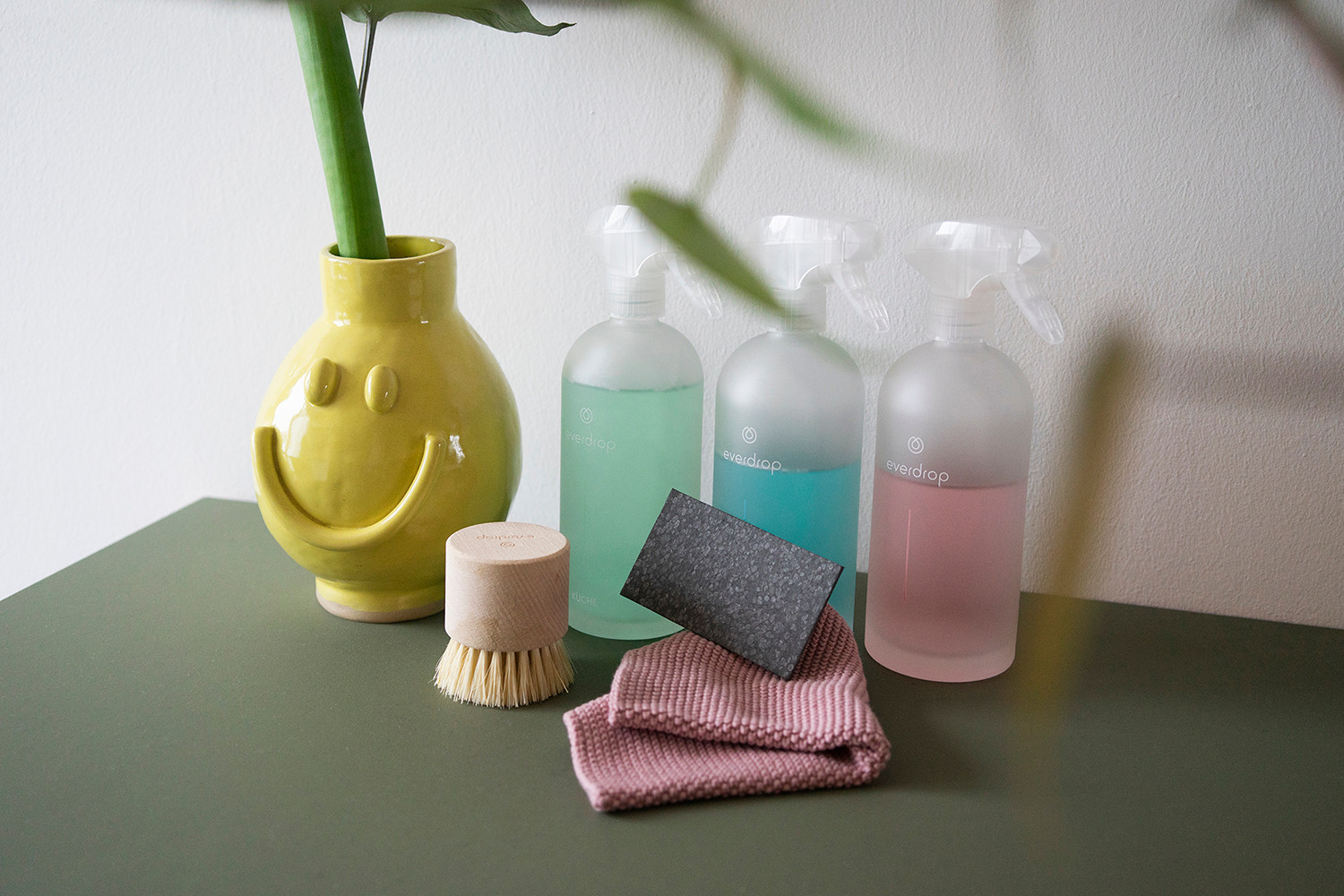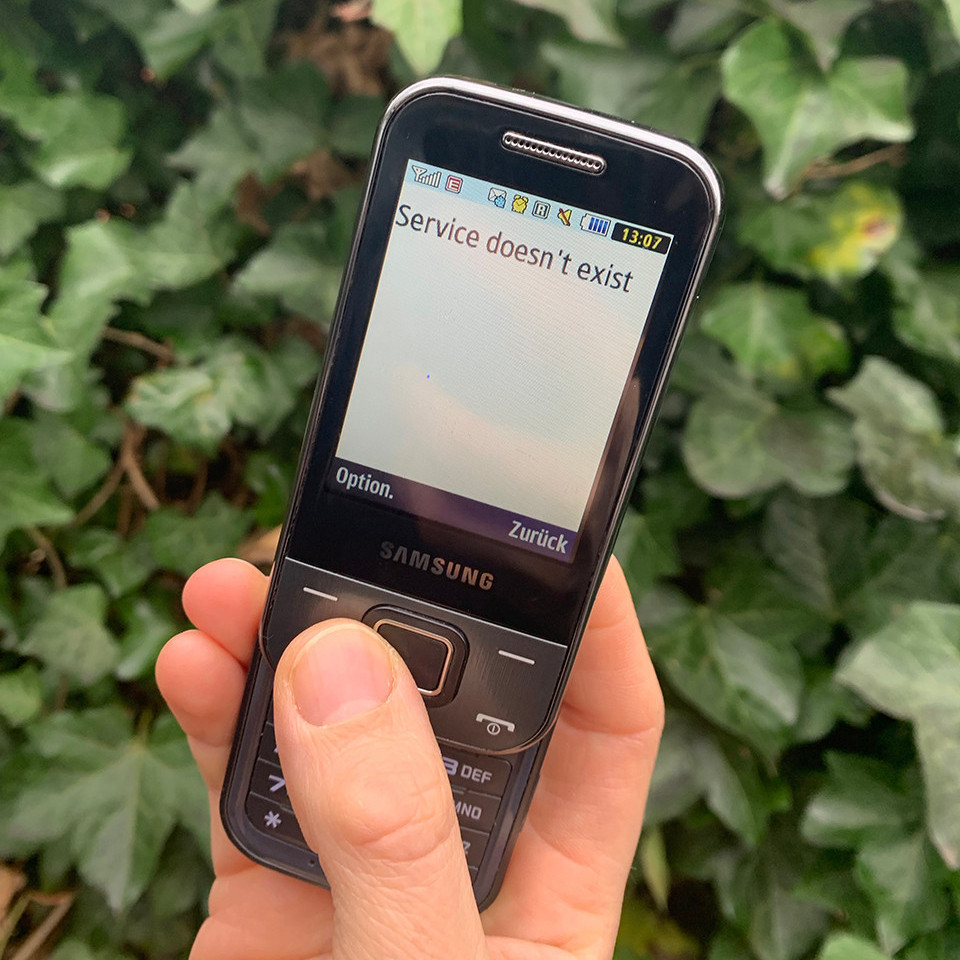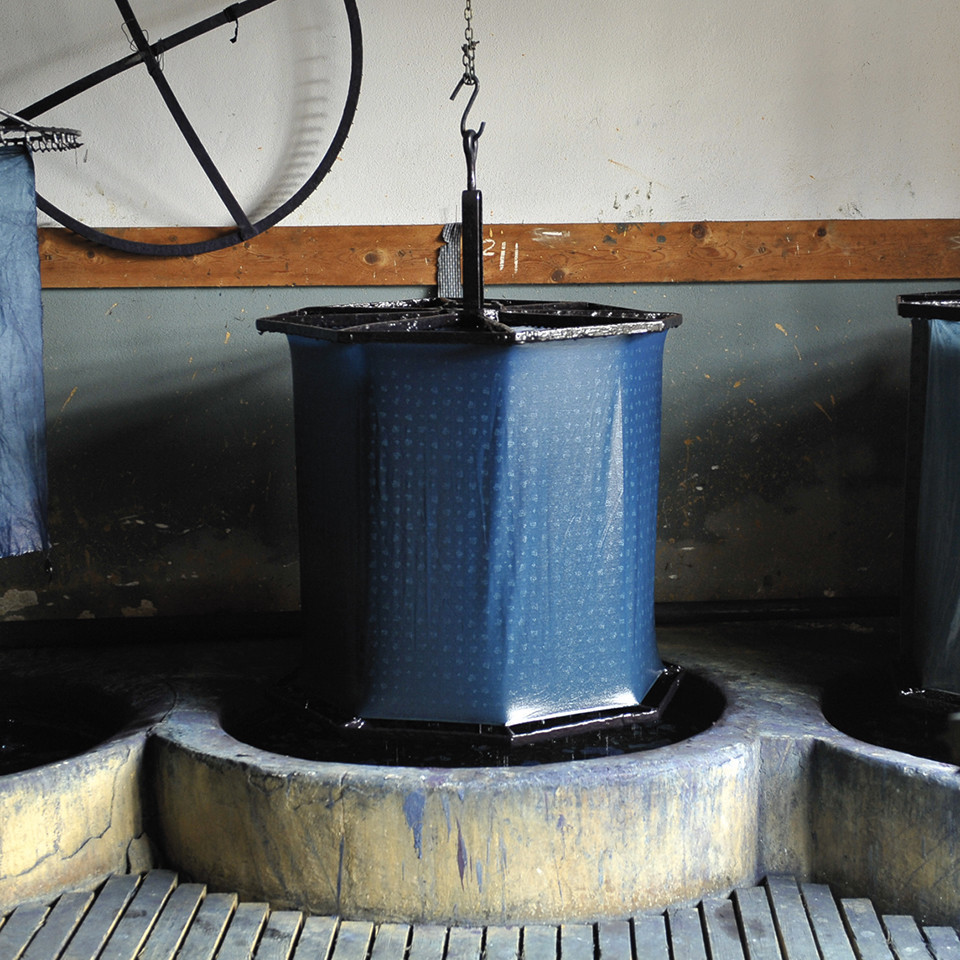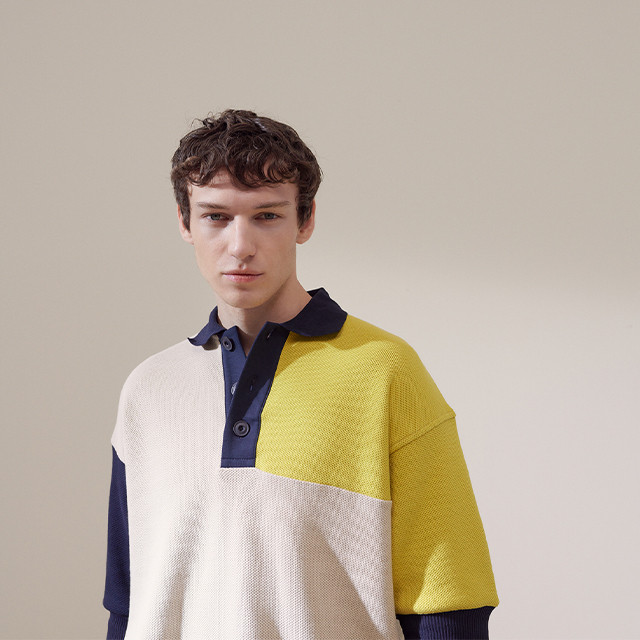
Time to clean-clean

By Jana Neff
In every issue we feature a self-test aimed at making our lives more sustainable. This time, art director Jana cleans her apartment with eco-friendly supplies – and tells us about her own kind of cleaner clean.
In many areas of my life I already try to live more sustainably – for example, riding a bike instead of a car, choosing energy from sustainable resources, buying natural cosmetics, regional fruit and vegetables. But, of course, there is always room for improvement and even though I’m not really known for being crazy about housework, I decided it was time to try some sustainable cleaning alternatives. For this article I tested Everdrop’s “World Saviour” set and other eco-friendly household ingredients in order to replace the hygienic-smelling cleaning supplies in very colourful plastic bottles on my shelves.
Before we start scrubbing, washing and wiping, this is not a product test which compares multiple products and then declares one heroic winner at the end. It’s more an attempt to change my habits, learn about the differences and see how well more eco-friendly products perform. So let the cleaning begin!
When the parcel with my new supplies arrived, I was extremely surprised about how excited I could get unpacking cleaning products. The products are very easy on the eyes – which is never a bad thing for a neat graphic designer. Each product – the set contains laundry detergents, dishwasher tabs and three different cleaning tabs for the bathroom, the kitchen and for glass – is wrapped in paper, not plastic. Additionally, the set contains reusable white storage boxes and three glass bottles. Now I’m supposed to produce my own cleaners by filling up the three bottles with tap water and throwing in one tab each. The benefit of this procedure is clearly the elimination of plastic bottles and the carbon emissions from transporting heavily filled plastic bottles from A to B. When my glass bottle is empty after many rounds of cleaning, I just go and buy a new tab and that’s it. I can’t complain about the performance either. The only difference I noticed was that the new products don’t leave the supposedly clean smell that automatically creates this special, satisfiying and totally conditioned feeling of a clean apartment. In fact, they hardly smell at all and are rather neutral. On the plus side, I know that I have not just released clouds of microplastics or unnecessary disinfectants into the world. By the way, there are several companies with similar eco-friendly and plastic-free cleaning concepts, for example, Biobaula or Sauberkasten.



Happy cleaning! This is Jana’s sustainable cleaning set, including an eco-friendly cellulose sponge, a plastic-free washing-up brush and cleaning cloth made of cotton.
So let the cleaning begin!
After cleaning my apartment, I read a bit about the topic – and learn that my new laundry detergent is German-made, completely vegan, biodegradable, microplastics-free and uses natural sugar surfactants from renewable and certified resources. Sounds like a very nice alternative. But a very nice alternative to what actually? And how great are sugar surfactants in the end? And what do these surfactants do? I have many questions. If you know all of this already you can skip this paragraph – if not, read on. Surfactants are able to lower the surface tension of water and are responsible for dissolving and binding oil and dirt. They are essential for cleaning supplies and therefore can’t simply be replaced. Most products use synthetic surfactants based on mineral oil, which are washed away into our sewage and the environment – not good! The sugar surfactants in my new cleaning products contain palm oil, which doesn’t sound too clean to me anymore. But after some research it seems to be the most sustainable and efficient alternative – and it’s palm oil from certified plantations. Comparable plants would need much more space to grow and use up more resources than palm oil plantations. But there is a happy note: It’s possible to buy three different kinds of detergent depending on water hardness. The softer the water, the fewer surfactants are needed to produce clean clothes.
On everdrop.de I additionally find some tips on how to use oil, lemons or potatoes in order to achieve a spotless and fresh-fragranced home. What sounds like the ingredients for a tasty meal actually works very well. I use the lemon to remove limescale spots in the bathroom, oil to eliminate grease stains (ironic) from my stove and potatoes to make my kitchen fittings shine like crazy. Now I’m completely on fire and use the exuberant motivation to also clean my water kettle with vinegar (love it!).
All in all, I now have an extremely clean apartment, beautiful cleaning supplies that almost look like decorations and the happy feeling of having learned and tried something new. Time for you to clean-clean!
Past Stories
Copy












